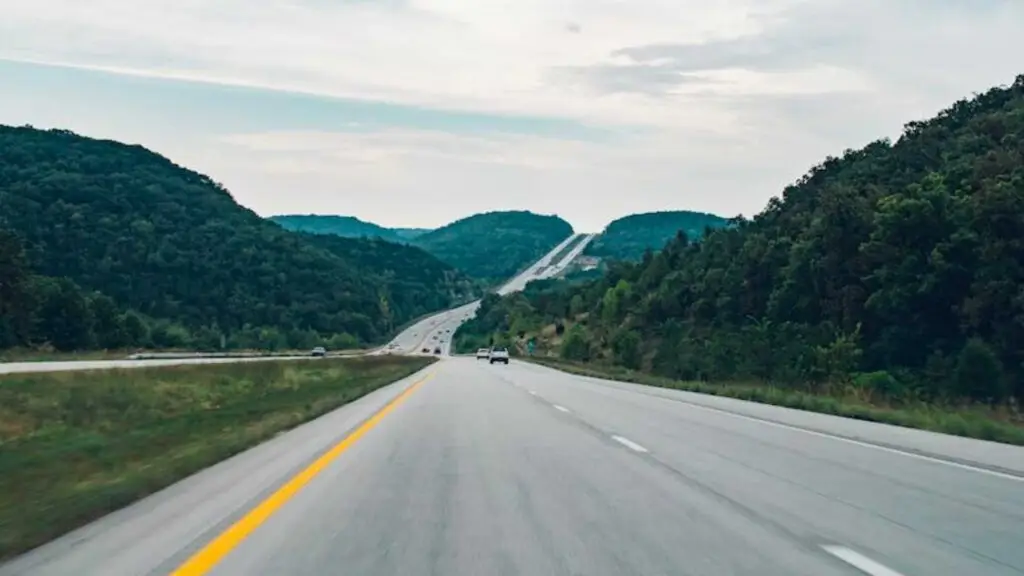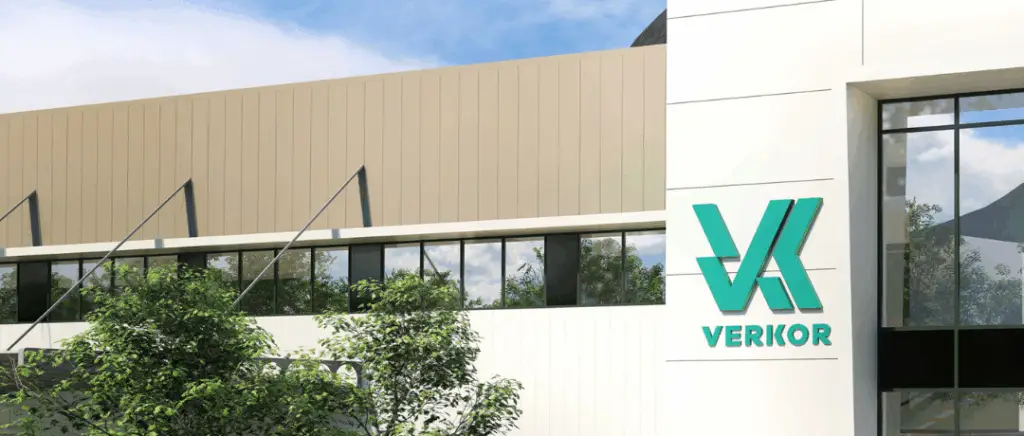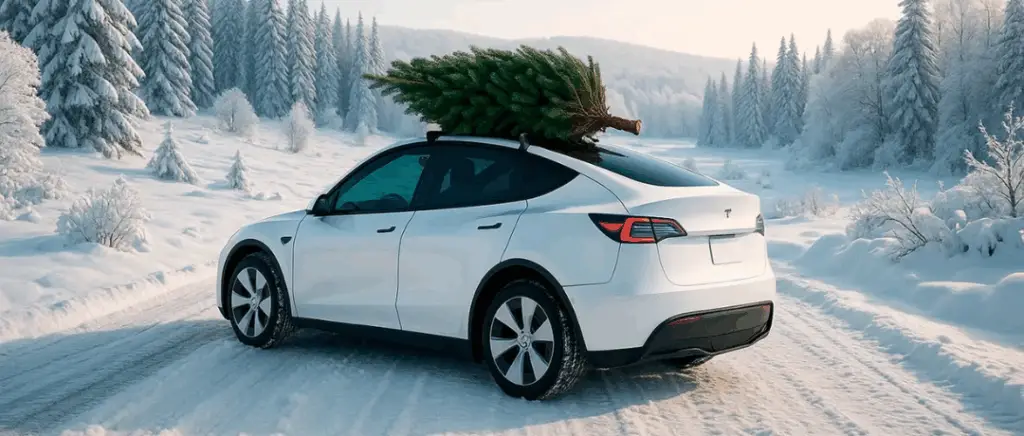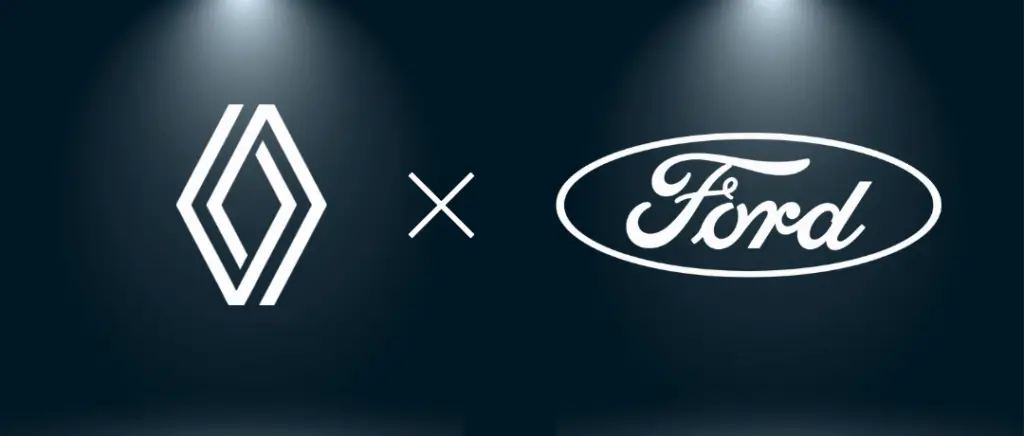Monday to Friday 9am - 12.30pm - 2pm - 7pm
Versatility is more important thanautonomy
Why does a good electric motorway car need to be versatile?
These elements involve :
- Driving style
- Speed
- Interior parameters
- Weather conditions
- Battery life
You will have noticed that most city electric cars are cars that don't always meet the dual needs of an urban lifestyle and long journeys. It's not a question of spending a fortune on a new car, either. electric sports car. Pf, for example, your long journeys involve going on holiday with your family, where comfort would not be an issue, or regular business trips, where comfort would be an issue. battery could cost you in wear and tear.
If your aim is to find a good compromise between an electric car for everyday use and one that will, in due course, be capable of making long journeys without the slightest hassle and without your journeys being very expensive, then this article is for you.
Some cars won't have enough range to get you to your final destination, so your electric car will need to be as versatile as possible.
What criteria are used to assess the versatility of an electric car?
- La useful capacity of the battery : Ebetween useful capacity (80%) and total capacity (100%): The useful capacityrepresents the amount of battery energy that can actually be consumed out of the total capacity. The difference is simply a margin to avoid overcharging the battery when refuelling.
- Motorway fuel consumption : La motorway fuel consumption represents the average energy consumed by the electric car over a given distance. It depends on a number of factors, such as the technical properties of the car, driving speed and external circumstances. It is calculated on the basis of KWh per 100 km travelled.
- Motorway range : Battery autonomy is the main source of affliction when it comes to arriving at the destination of a long journey in an electric car. The great distances you can cover with a maximum battery charge will be determined in advance by the vehicle's capacity in kW (kilowatts).
- Maximum load power : Lhe charging power is a factor specific to each model of electric car that determines the speed at which you can "fill up". It depends on the size of the battery and the voltage of its electrical system. This factor can slow down charging when the useful capacity is full.
- Maximum mileage recovered per hour of charging : Lhe maximum mileage recovered represents the speed at which the electric car recovers its range per hour of charging. If the car has a low consumption trend, you'll be able to cover a greater distance than a high-consumption car, and all with the same amount of energy.
- Charging time at 100% / 80% : Le charging time expressed at 80% is simply the threshold that compromises charge time and range recovered. Above this limit, the charging speed slows down and charging at 100% can take twice as long as charging from 0 to 80%.
- Fast charging port : Lhe connectors between the charging points and the electric cars must match, if you want to draw the maximum charge from them. For example, CCS models cannot draw their heaviest load from Type 2 sockets.
- Route planning on GPS : An itinerary suggested by GPS can be a very effective way of planning a long journey. The car's built-in GPS calculates range and stopping times for recharging, identifies stations and the status of charging points in real time... In short, if your car's GPS is relevant enough, it will assess every last detail of the journeys you wish to make, in order to offer you the best option.
- The recommended network : If the car is adapted to several networks, that's a very good point. And if the network is one of the most developed on the market, then you can be sure of a fast, efficient service for frequent recharging of an electric vehicle.
- Cost per 100 km : The cost of recharging varies according to the charging points chosen and the car's battery. Knowing the cost of recharging allows you to anticipate the potential budget you'll need to set aside for recharging. This is an important factor, if you take it into account over the long term.
Beev selection: Top 10 motorway electric cars
Which one is best suited to your needs?
You will notice that the most powerful electric cars That's why in this article Beev has selected models that are powerful enough to cope with high speeds too, but at prices that are more affordable for the vast majority.
In this ranking, you will be able to distinguish the specific strengths of each model, based on which their versatility is assessed.
Now it's your turn!
Tesla Model S: most useful battery capacity
Constantly innovating, the Tesla Model S offers the most comprehensive range of qualities on the market. With a high starting range and the installation of the Tesla Model 3's rear engine at the front of the vehicle, it is the car with the best balance between range and fuel consumption among the selection.
Its only constraint is the end of the charge, which could be quicker. But it has a sufficiently dense network of Superchargers to overcome this slight difficulty.
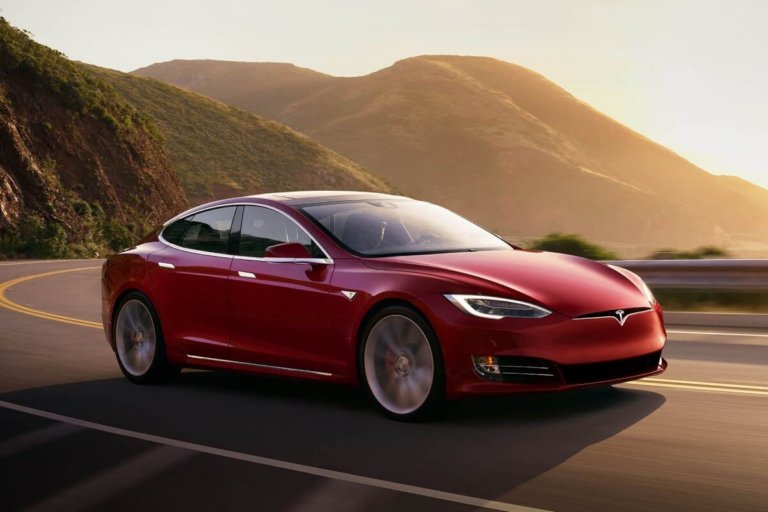
|
Useful battery capacity
|
95 kWh
|
|
|
Motorway fuel consumption
|
21 kWh/100 km
|
|
|
Motorway range
|
430 km
|
|
|
Maximum load power
|
130 kW
|
|
|
Maximum range per hour of charge
|
630 km
|
|
|
Charging time at 80 %
|
55 min
|
|
|
Charging time at 100 %
|
1h20 min
|
|
|
Fast charge port
|
Type 2 Tesla + CCS adapter
|
|
|
Route planning on GPS
|
5/5
|
|
|
Recommended network
|
Supercharger
|
|
|
Cost per 100 km
|
0 €
|
|
You would like to
to electric?
Beev offers multi-brand 100% electric vehicles at the best prices, as well as recharging solutions.
Hyundai Kona 64 kWh: lowest motorway fuel consumption
Then there's the Hyundai Kona, with its undeniable range, which meets all the necessary criteria for an enjoyable motorway experience. A decent range, if we take into account its fairly low energy consumption. The only slight constraint is its maximum load, which is 77 kW, but which can still cover a long journey. Finally, the charging rate for its network is not definitive and will soon be discussed for reduction.
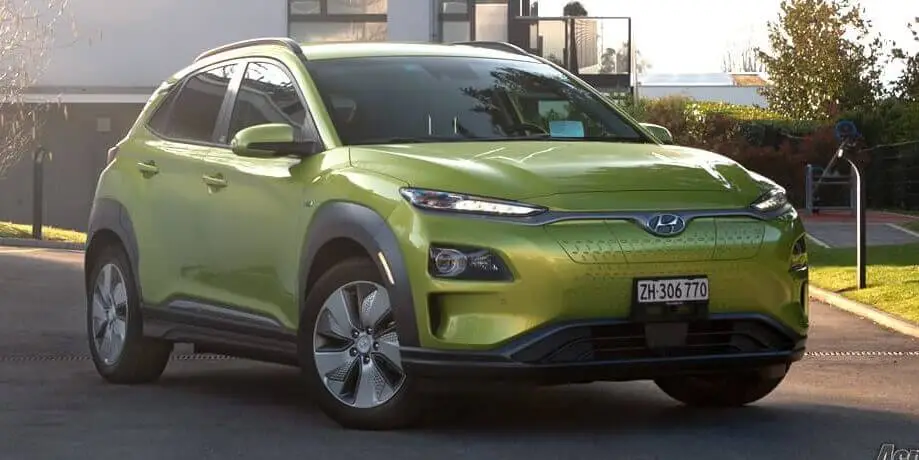
|
Useful battery capacity
|
64 kWh
|
|
|
Motorway fuel consumption
|
22 kWh/100 km
|
|
|
Motorway range
|
270 km
|
|
|
Maximum load power
|
77 kW
|
|
|
Maximum range per hour of charge
|
350 km
|
|
|
Charging time at 80 %
|
50 min
|
|
|
Charging time at 100 %
|
1h30 min
|
|
|
Fast charge port
|
CCS
|
|
|
Route planning on GPS
|
1/5
|
|
|
Recommended network
|
||
|
Cost per 100 km
|
10.80 (Ionity tri-standard) or €18.30 (Ionity)
|
|
Tesla Model 3: longest motorway range
Thanks to its range, low consumption, charging power, dense network at reasonable prices, and well-developed route planning.
La Tesla Model 3would be an almost excellent choice, given its versatility.
We still have to resolve the same weakness: speed at the end of a charge. However, this model represents the most reliable electric car for the motorway.
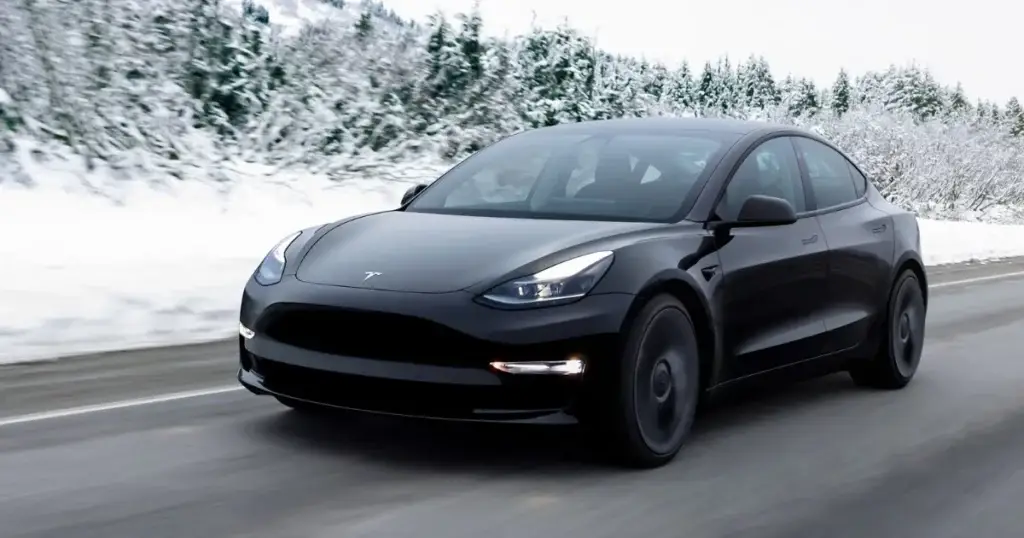
|
Useful battery capacity
|
70 kWh
|
|
|
Motorway fuel consumption
|
19 kWh/100 km
|
|
|
Motorway range
|
350 km
|
|
|
Maximum load power
|
190 kW
|
|
|
Maximum range per hour of charge
|
1,000 km
|
|
|
Charging time at 80 %
|
25 min
|
|
|
Charging time at 100 %
|
60 minutes
|
|
|
Fast charge port
|
CCS
|
|
|
Route planning on GPS
|
5/5
|
|
|
Recommended network
|
Supercharger
|
|
|
Cost per 100 km
|
4,50 €
|
|
BMW i3s 120Ah: Most powerful maximum charge
The BMW i3s 120Ah is a pretty good alternative if you're looking for a long trip. Being more of an urban electric car, it's versatile enough to ensure a good trip in this model. Its range isn't the greatest, and its high fuel consumption may seem limiting, but don't worry. Its maximum power supports the vehicle's range, so the size of the battery won't really slow you down. Only the number of stops for recharging will be a little more frequent.
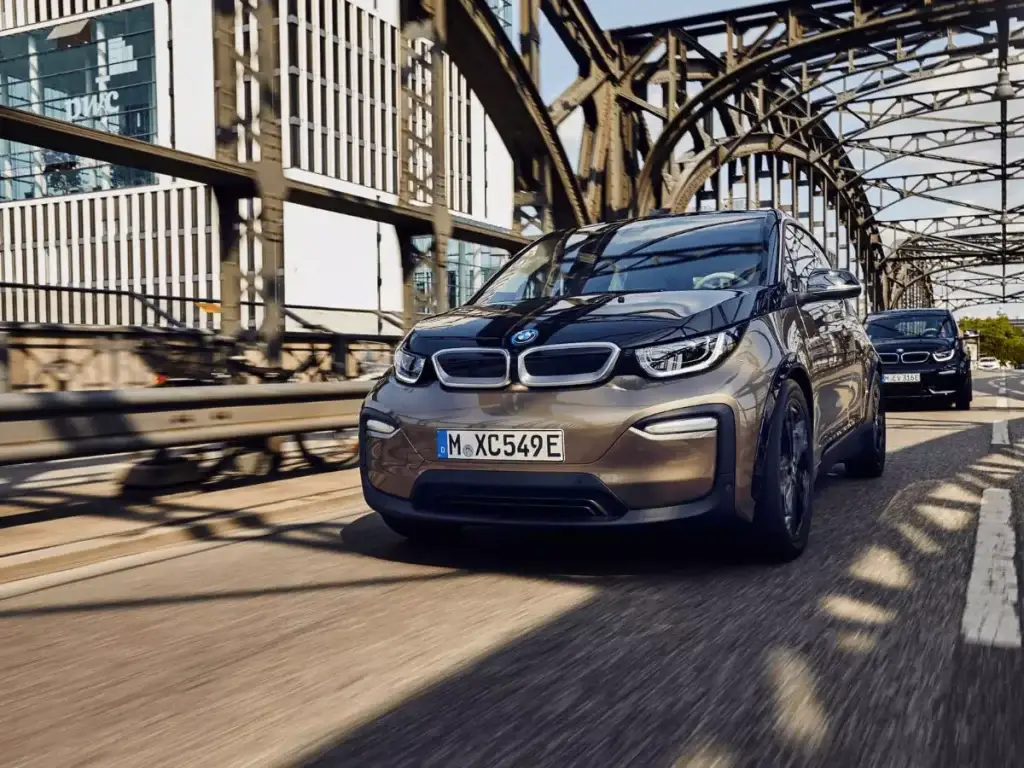
|
Useful battery capacity
|
37.5 kWh
|
|
|
Motorway fuel consumption
|
25 kWh/100 km
|
|
|
Motorway range
|
140 km
|
|
|
Maximum load power
|
44 kW
|
|
|
Maximum range per hour of charge
|
180 km
|
|
|
Charging time at 80 %
|
40 min
|
|
|
Charging time at 100 %
|
55 min
|
|
|
Fast charge port
|
CCS
|
|
|
Route planning on GPS
|
2/5
|
|
|
Recommended network
|
Ionity tri-standard
|
|
|
Cost per 100 km
|
12,30 €
|
|
Kia Niro EV: km recovered per hour charged
This multi-purpose electric car stands out from the rest thanks to its design and slightly more family-friendly creature comforts. It shares the same powertrain as the Hyundai Kona. And although it performs well enough on a motorway journey, it is still not up to the standard of other models, as is the case with its route programming. Its charging points are nevertheless an asset for this model, and the cost of fast charging is reasonable in relation to the initial price of the car.
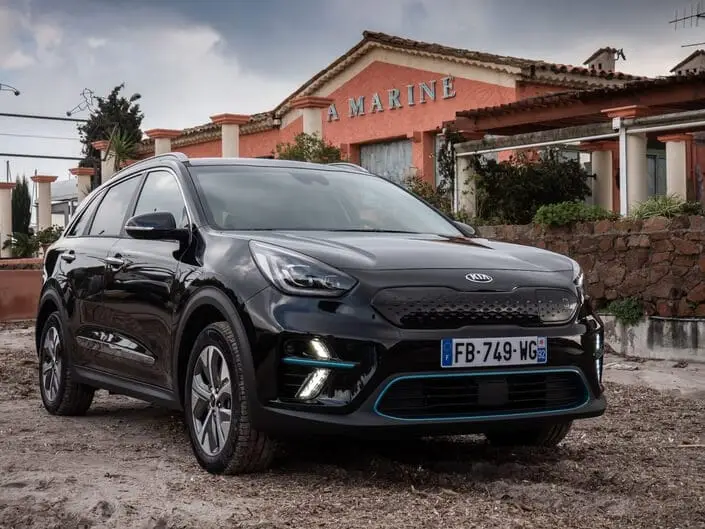
|
Useful battery capacity
|
64 kWh
|
|
|
Motorway fuel consumption
|
22 kWh/100 km
|
|
|
Motorway range
|
270 km
|
|
|
Maximum load power
|
77 kW
|
|
|
Maximum range per hour of charge
|
350 km
|
|
|
Charging time at 80 %
|
50 min
|
|
|
Charging time at 100 %
|
1h30 min
|
|
|
Fast charge port
|
CCS
|
|
|
Route planning on GPS
|
1/5
|
|
|
Recommended network
|
Ionity tri-standard
|
|
|
Cost per 100 km
|
10,80 €
|
|
Porsche Taycan Turbo: charging time at 80% and at the most optimal 100%
Another very complete model, to ensure a departure hundreds of kilometres from home. Somewhat expensive, with a price range of between €155,552 and €189,152, the cost of this model could be the only thing holding you back from buying this vehicle.
Ambitious performance figures which, despite slightly higher fuel consumption than its rivals, are justified by a very fast full charge at 800 volts - a criterion that is not given sufficient priority by other manufacturers apart from Tesla.
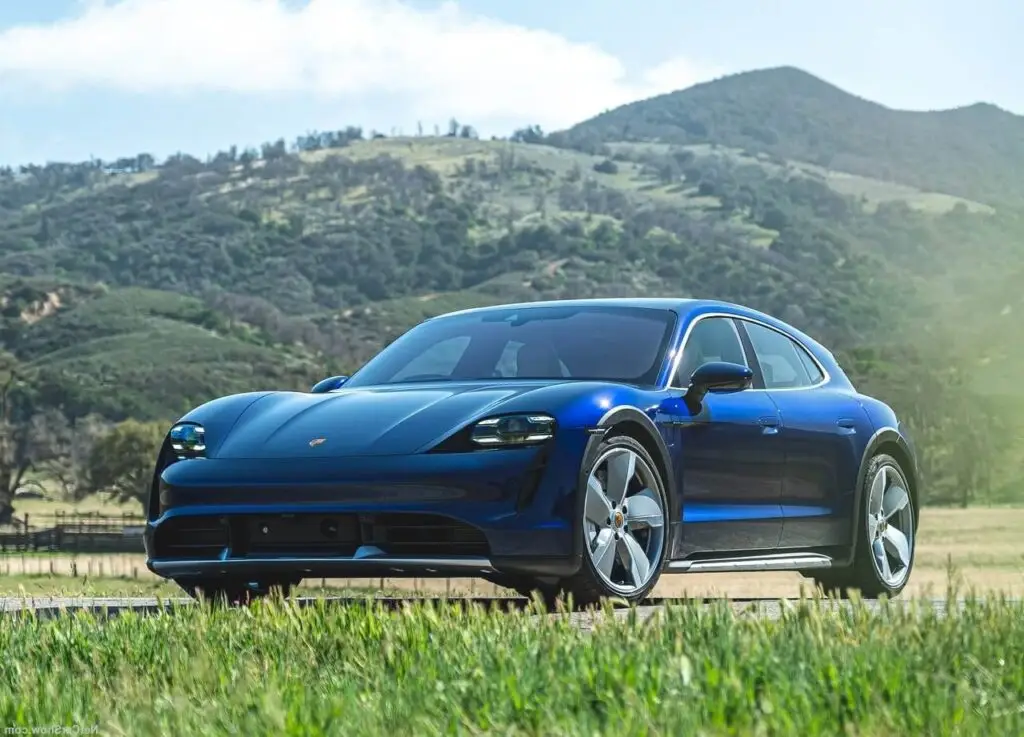
|
Useful battery capacity
|
37.5 kWh
|
|
|
Motorway fuel consumption
|
25 kWh/100 km
|
|
|
Motorway range
|
140 km
|
|
|
Maximum load power
|
44 kW
|
|
|
Maximum range per hour of charge
|
180 km
|
|
|
Charging time at 80 %
|
40 min
|
|
|
Charging time at 100 %
|
55 min
|
|
|
Fast charge port
|
CCS
|
|
|
Route planning on GPS
|
2/5
|
|
|
Recommended network
|
Ionity tri-standard
|
|
|
Cost per 100 km
|
12,30 €
|
|
Audi e-tron: fastest charging port
With a more autonomous model than the average electric cars However, the Audi e-tron's capabilities are hampered by very high fuel consumption at 130 km/h. Designed primarily for urban areas, this model can afford to cover 220 km, but the low density of the Ionity network means that it is not yet possible to map out a serene route. TheIt's an electric car that can, on some occasions, take you outside the original urban area.
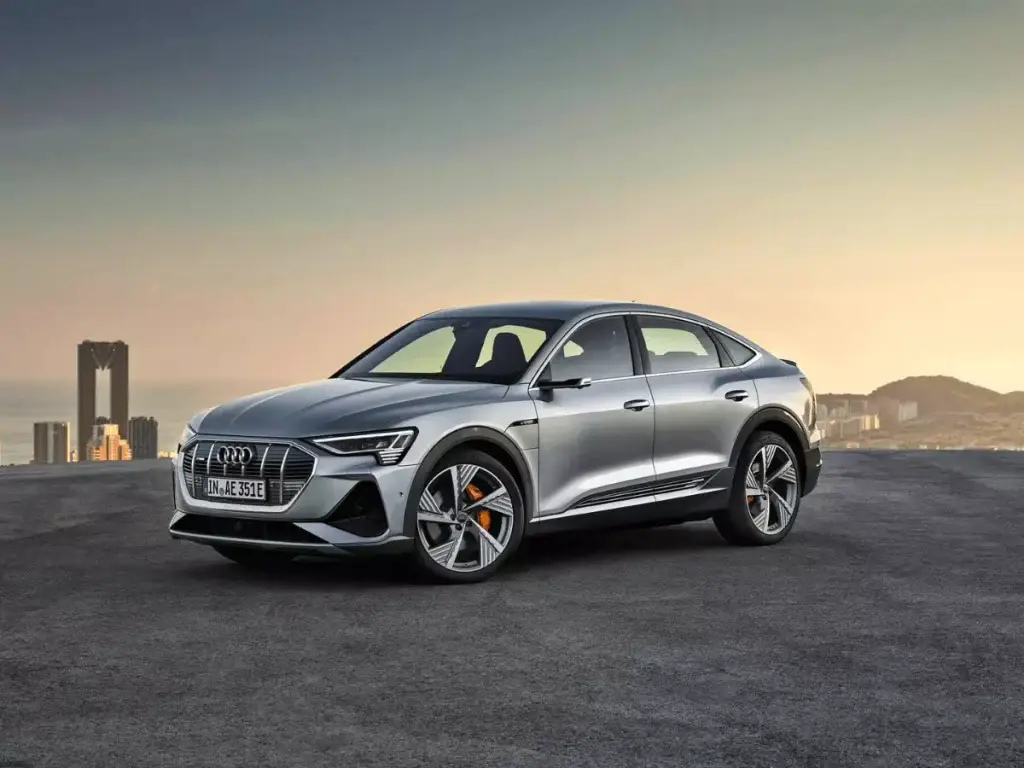
|
Useful battery capacity
|
84 kWh
|
|
|
Motorway fuel consumption
|
35 kWh/100 km
|
|
|
Motorway range
|
220 km
|
|
|
Maximum load power
|
150 kW
|
|
|
Maximum range per hour of charge
|
430 km
|
|
|
Charging time at 80 %
|
30 minutes
|
|
|
Charging time at 100 %
|
40 min
|
|
|
Fast charge port
|
CCS
|
|
|
Route planning on GPS
|
3/5
|
|
|
Recommended network
|
Ionity
|
|
|
Cost per 100 km
|
11 €
|
|
Mercedes-Benz EQC: the most advanced GPS route planning system
The Mercedes EQC is a model with a fairly balanced and realistic range of features for an electric car to be driven on motorways. Its GPS programming is one of the best of all the models we've seen, and its rapid battery charging rounds off the vehicle's versatility.
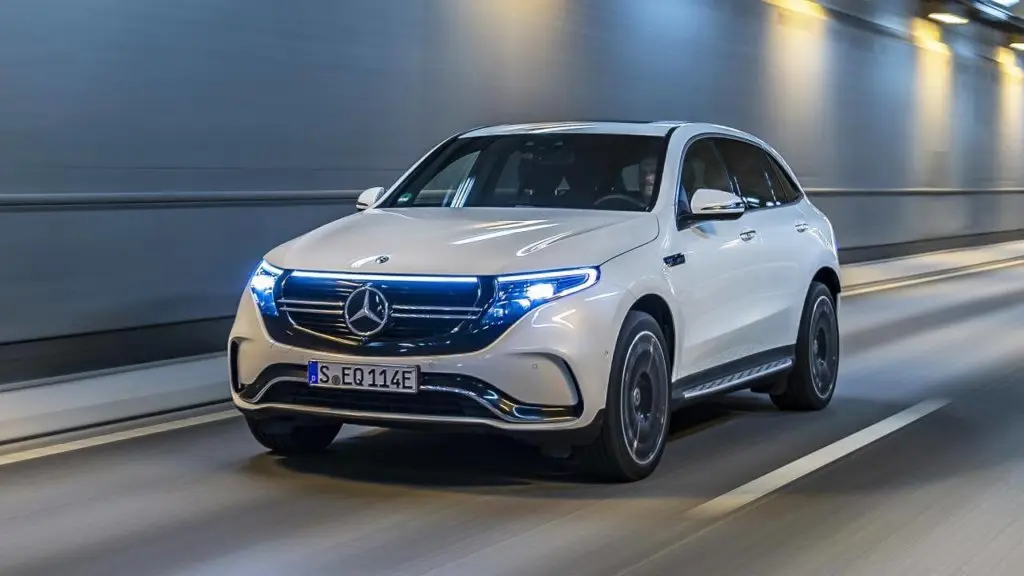
|
Useful battery capacity
|
80 kWh
|
|
|
Motorway fuel consumption
|
27 kWh/100 km
|
|
|
Motorway range
|
280 km
|
|
|
Maximum load power
|
108 kW
|
|
|
Maximum range per hour of charge
|
400 km
|
|
|
Charging time at 80 %
|
35 min
|
|
|
Charging time at 100 %
|
1h
|
|
|
Fast charge port
|
CCS
|
|
|
Route planning on GPS
|
4/5
|
|
|
Recommended network
|
Ionity
|
|
|
Cost per 100 km
|
8,90 €
|
|
Kia e-Soul 64 kWh: recommended densest network
The Kia e-soul makes the list because it offers a very good range, supported by decent fuel consumption on the motorway, as well as a charge that's neither perfect nor inadequate. Its main asset, then, is its recommended network "Ivizia. What's more, it's an electric motorway car that comes at a more affordable price than other, more powerful motorway models.
|
Useful battery capacity
|
64 kWh
|
|
|
Motorway fuel consumption
|
22 kWh/100 km
|
|
|
Motorway range
|
270 km
|
|
|
Maximum load power
|
77 kW
|
|
|
Maximum range per hour of charge
|
350 km
|
|
|
Charging time at 80 %
|
50 min
|
|
|
Charging time at 100 %
|
1h30
|
|
|
Fast charge port
|
CCS
|
|
|
Route planning on GPS
|
1/5
|
|
|
Recommended network
|
Ionity
|
|
|
Cost per 100 km
|
10.80 (Ionity tri-standard) or €18.30 (Ionity)
|
|
Nissan Leaf: best for urban journeys
Overall, the Nissan Leaf is one of the most popular electric cars on the market, especially in Europe. With a range of up to 40 kWh, low fuel consumption and fast recharging, it has a number of assets that attract customers. However, while it outshines the competition in some respects, on the motorway it's quite the opposite.
She couldn't manage a long journey: Why?
Simply because Nissan plugs are not compatible with all fast-charging stations. So you'll need to plan an even better route to cover all those kilometres.
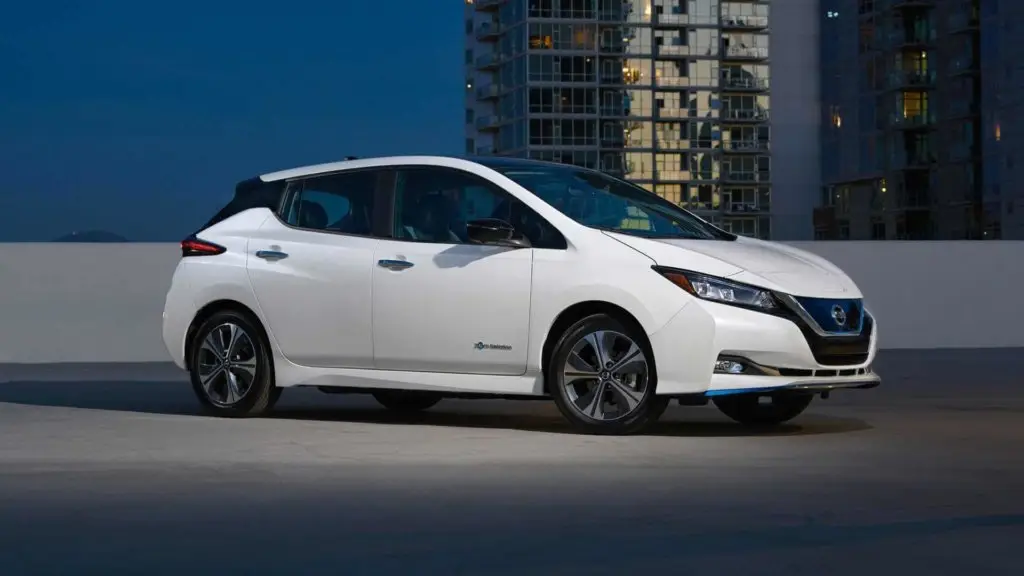
Planning a long motorway journey: electric car
France has 440 service areas on its national road network. Only 140 of these are equipped with charging points. Motorway service stations, where the charging points are located, must offer a minimum of four fast charging points, including at least two 150 kWh charging points.
The fast charging stations are powered by 100% renewable energies and can recover more than 80% of range in less than 30 minutes.
Before taking to the road in an electric car, you'll need to prepare the route taking into account criteria specific to your electric vehicle.
Download Chargemap (also available on Android)!
- Choose your route.
- Find the right national roads/motorway sections where the milestones are located.
- Evaluate the range between each stop.
- Take recharge times into account.
- Remember to take something to occupy yourself during breaks.
- Locate faulty terminals, potential traffic jams and diversions...
- Take into account the impact of heating and air conditioning consumption on battery charge.
You can also use web applications to simulate these journeys (Green Race and MyEVtrip).
Bonus : project to install fast charging stations on all motorway service areas by 2022.
Financed by the French government, this project, with a total budget of 100 million euros, aims to develop networks of charging points at motorway service areas. This innovative initiative will make it easier for more electric vehicles to travel on motorways.
Have a safe journey!
